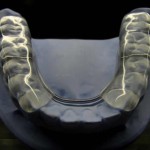
As MSK elves we already know shoulder pain is one of the most common presenting musculoskeletal conditions accounting for between 7 -26% of general practitioner consultations in the UK. There are a variety of causes of shoulder pain and some of our previous blogs have discussed challenges to developing an acurate diagnosis. Once we have our appropriately [read the full story…]








